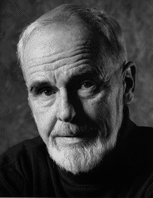My Jesuit friend and neighbor, Dick Vogt, has told me of people like María and many others of the 12 to 14 million “undocumented aliens.” She is not necessarily typical of the masses who have illegally entered this country. Some, no doubt, are drunks and dealers; many are incarcerated for other crimes than their immigrant status. But most have come at great risk to their lives, because their lives were already at risk from poverty and displacement. They want to make a living, form a family and help their families back home.
The Catholic bishops of Mexico pointed out in January that the recent surge of immigration is a direct effect of the North American Free Trade Agreement. Open trade, while benefiting the most powerful and technologically advanced, has threatened poor farmers and their small rural communities. They cannot compete with heavily subsidized U.S. and Canadian producers. It is this phenomenon that drives so many to leave their homeland for a livelihood in the United States, despite, as the bishops put it, “its anti-humane immigration program.”
The U.S. bishops, witnessing everything from evictions in California to employment raids in Massachusetts, have stirred the consciences of their dioceses and taken stands in conscience of their own. The bishop of Oklahoma City and 10 of his pastors have publicly professed defiance of a punitive state law that makes felons of all who “aid, assist or transport any undocumented person.” The bishops of Missouri have expressed their alarm over politicians “who vie to see who can be tougher on illegal immigrants.” Cognizant of the economic pressures on many families in rural Mexico, they call for a more compassionate, fair and realistic reform of our immigration system, including education and humanitarian assistance to all children, “without regard to legal status.”
There has been some resistance to the bishops’ proposals and some resentment. It is reminiscent of the outrage directed by anti-immigrant groups toward last year’s immigration reform bill, a very harsh measure that they nonetheless condemned for proposing what they called amnesty.
Some of the resentment is understandable. There are householders, especially on the border, who have had their land and yards trashed. Residents of some towns feel flooded with immigrants they cannot engage or manage. A few businesspersons who have refused to hire undocumented or cheaper labor have lost sales and customers.
But this does not explain the seething hostility that can be read in some nativist opinion columns and popular books or heard on radio talk shows: “They are criminals, felons; and that’s that.”
“They have broken the law.” This is an interesting standard of ethics, justice or charity for a nation that sees itself as Judeo-Christian and humane. It is puzzling that we do not think of the Good Samaritan or of the “least of our brothers and sisters” in Matthew 25, or of the passage from Leviticus that the Missouri bishops quote: “The stranger who sojourns with you shall be to you as the native among you, and you shall love him as yourself.”
As for making the law our bottom line, do Christians know how many times Jesus was in trouble with the law? Do they know that the natural law tradition, articulated in the work of Thomas Aquinas, holds an unjust law to be no law at all? Do they forget that our nation was founded upon an appeal to a higher law than positive law, an appeal shared by the labor movement, by Martin Luther King Jr., and by Elizabeth Cady Stanton and Susan B. Anthony?
A nation has every right to secure its borders. Unrestrained immigration will hurt our country, the immigrants and their homeland. So let us indeed protect our borders (even though that will not solve the problem of those who enter legally and overstay their visa). Let us also honestly face the multiple causes of illegal immigration. As an excellent position paper from the Center for Concern notes, illegal immigration involves many factors: trade negotiation, the governments involved, the immigrants who break the law by entering our country, employers who take advantage of them, corporate leaders who profit from them and consumers who benefit from lower food and service costs.
We must devise ways to offer legal status to anyone who contributes to our common good, whether as a future citizen or a temporary guest worker. If that means using the dirty word “amnesty,” so be it.
As to those who sojourn in our midst, let us be vigilant if they are threats and charitable if they are friends. It would be a good, if unusual, move if our legislators had the imagination to call for citizen panels before which an illegal immigrant could request amnesty, leniency and a path to citizenship based on his or her contribution to the community, solid employment record, faithful payment of taxes, family need and crime-free record.
Instead of fearing some abstract horde of millions, we might see the faces of people like María and hear their stories. If we turn them away, we will have to face the fact that we are not so much a nation of Judeo-Christian values as a punitive and self-interested people hiding under the protection of lesser, human-made laws.








